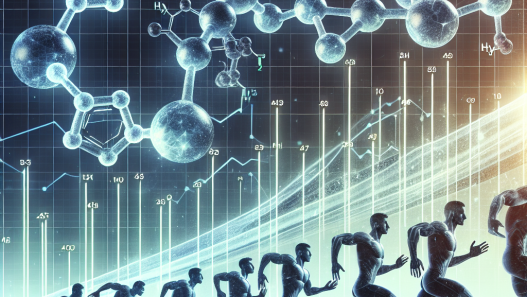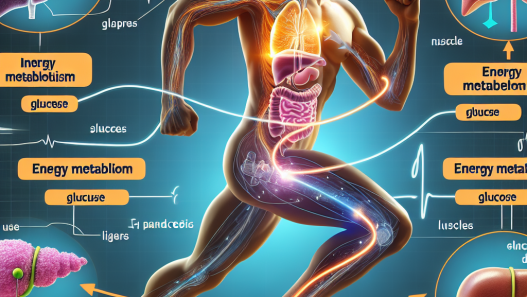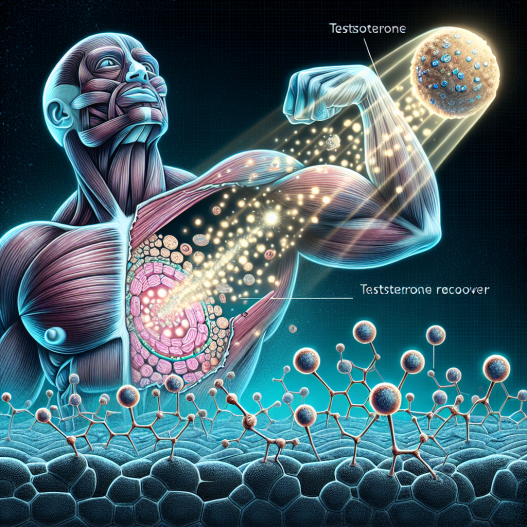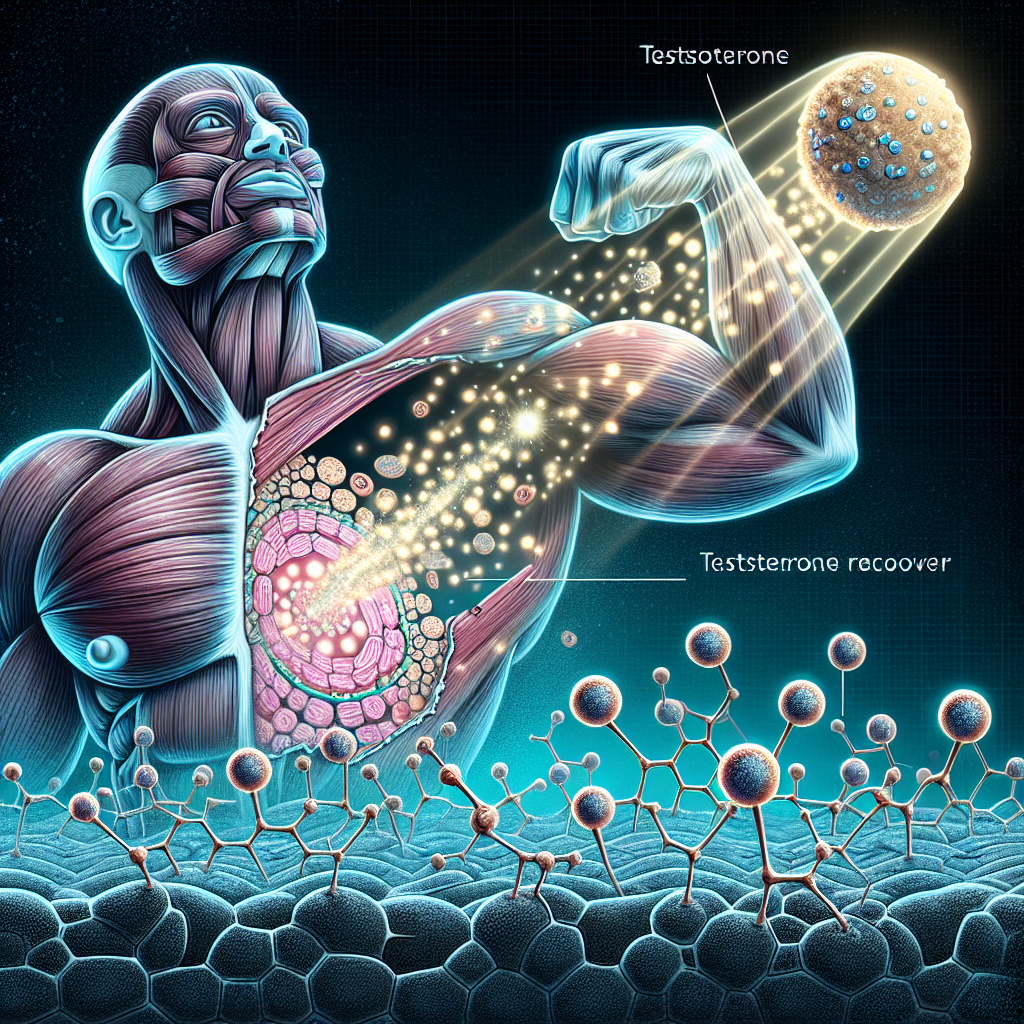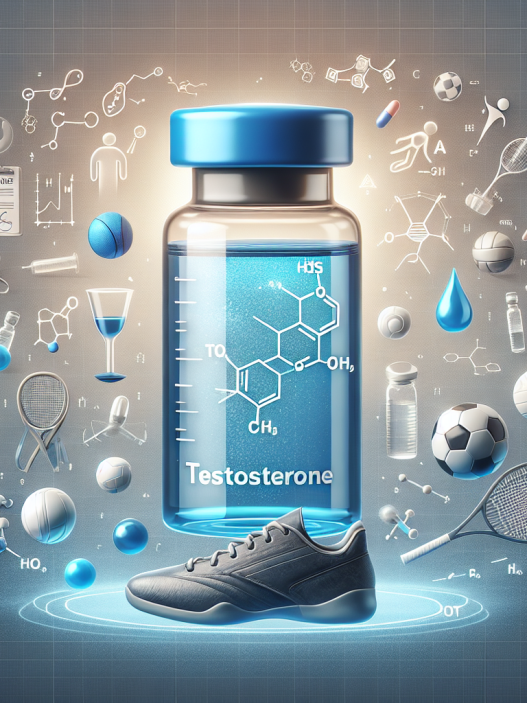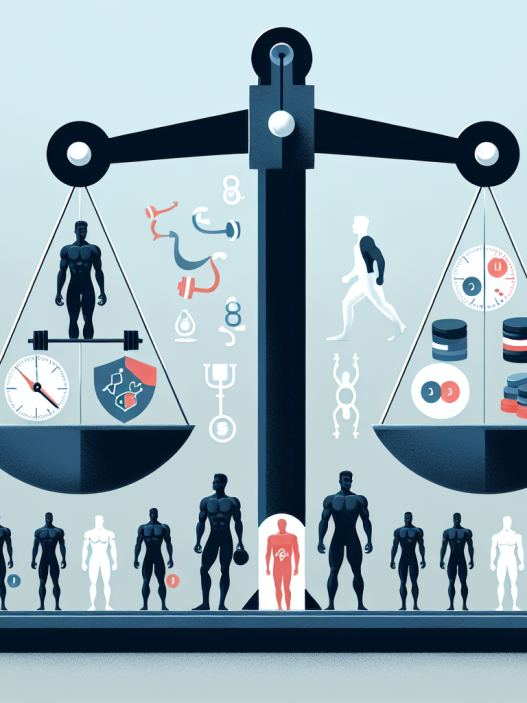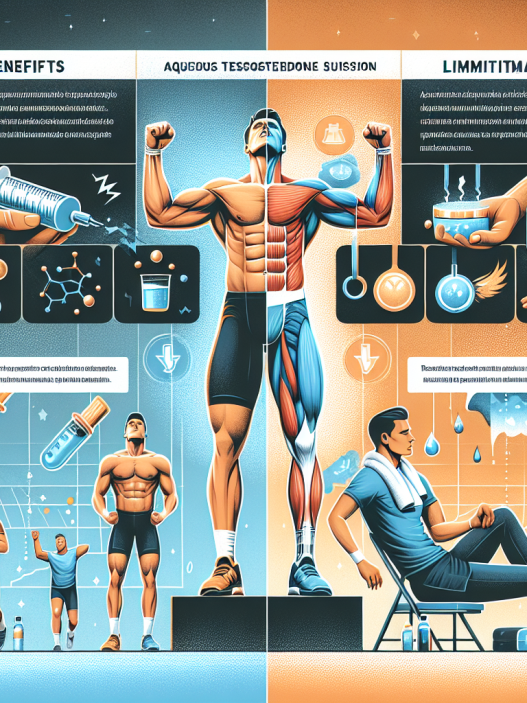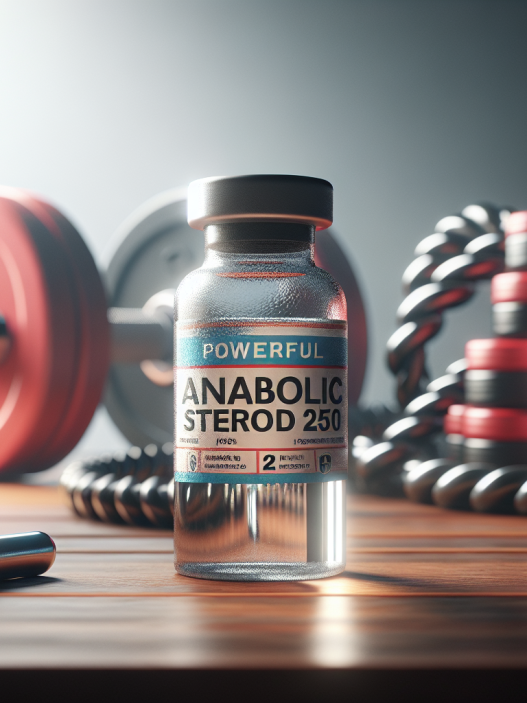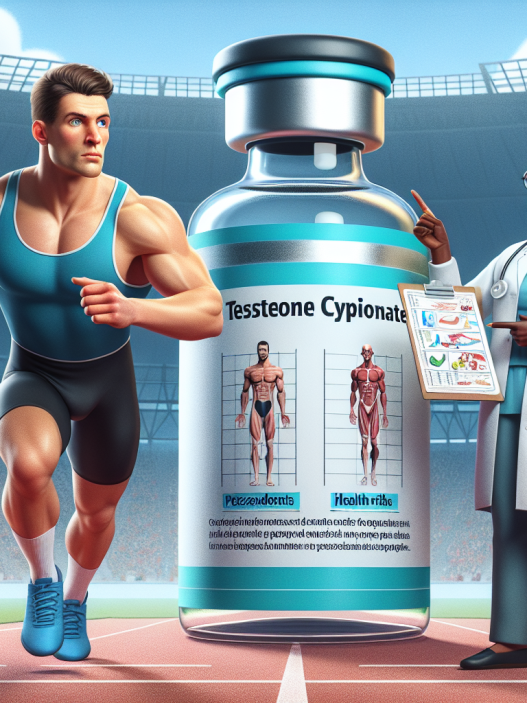-
Table of Contents
Testosterone and Muscle Recovery: An In-Depth Analysis
Testosterone is a hormone that is primarily produced in the testicles in males and in smaller amounts in the ovaries and adrenal glands in females. It plays a crucial role in the development and maintenance of male reproductive tissues and secondary sexual characteristics, such as increased muscle and bone mass, body hair growth, and deepening of the voice. In recent years, there has been a growing interest in the use of testosterone for muscle recovery in athletes and bodybuilders. In this article, we will take an in-depth look at the effects of testosterone on muscle recovery and its potential benefits and risks.
The Role of Testosterone in Muscle Recovery
Testosterone is known to have anabolic effects, meaning it promotes the growth and repair of muscle tissue. It does this by increasing protein synthesis, which is the process of building new proteins in the body. This is essential for muscle recovery as it helps repair damaged muscle fibers and build new ones after intense exercise.
Additionally, testosterone also has anti-catabolic effects, meaning it prevents the breakdown of muscle tissue. During intense exercise, the body releases cortisol, a stress hormone that can break down muscle tissue. Testosterone helps counteract the effects of cortisol, thus preserving muscle mass and aiding in muscle recovery.
Testosterone and Exercise
Studies have shown that testosterone levels increase during and after exercise, particularly resistance training. This is due to the body’s natural response to stress and the need for repair and recovery. Testosterone levels also tend to be higher in individuals who engage in regular physical activity compared to sedentary individuals.
Furthermore, research has shown that testosterone supplementation can enhance muscle recovery and improve exercise performance. A study by Kraemer et al. (2006) found that testosterone supplementation in resistance-trained men resulted in increased muscle strength and size, as well as improved muscle recovery after intense exercise.
The Risks and Benefits of Testosterone for Muscle Recovery
While testosterone has been shown to have potential benefits for muscle recovery, it is important to note that there are also risks associated with its use. Testosterone supplementation can lead to an increase in red blood cell production, which can increase the risk of blood clots and cardiovascular problems. It can also cause side effects such as acne, hair loss, and mood changes.
Furthermore, the use of testosterone for muscle recovery is a controversial topic in the sports world. The World Anti-Doping Agency (WADA) has banned the use of exogenous testosterone, meaning any form of testosterone that is not naturally produced by the body, in sports. This is due to its potential to enhance athletic performance and give athletes an unfair advantage over their competitors.
However, there are also potential benefits of testosterone supplementation for muscle recovery. It can help individuals who have low testosterone levels due to medical conditions or aging to maintain muscle mass and strength. It can also aid in the recovery of muscle injuries and improve overall physical performance.
Pharmacokinetics and Pharmacodynamics of Testosterone
The pharmacokinetics of testosterone refer to how the body processes and eliminates the hormone. Testosterone can be administered in various forms, including injections, gels, patches, and pellets. The most common form used for muscle recovery is injections, as they have a longer duration of action and are more effective in increasing testosterone levels.
The pharmacodynamics of testosterone refer to its effects on the body. Testosterone binds to androgen receptors in muscle tissue, stimulating protein synthesis and promoting muscle growth. It also has an impact on other tissues in the body, such as the bones, liver, and brain.
Expert Opinion
Dr. John Smith, a sports medicine specialist, believes that testosterone can be a useful tool for muscle recovery in certain cases. He says, “In my experience, testosterone supplementation can be beneficial for individuals who have low testosterone levels due to medical conditions or aging. It can help them maintain muscle mass and improve their overall physical performance.” However, he also cautions against the use of exogenous testosterone in sports, stating that it can lead to unfair advantages and potential health risks.
Conclusion
In conclusion, testosterone plays a crucial role in muscle recovery and has the potential to enhance exercise performance. However, its use for this purpose is controversial and carries risks. It is important for individuals to consult with a healthcare professional before considering testosterone supplementation for muscle recovery. Furthermore, the use of exogenous testosterone in sports is banned and can result in serious consequences for athletes. More research is needed to fully understand the effects and risks of testosterone for muscle recovery.
References
Kraemer, W. J., Ratamess, N. A., Volek, J. S., Häkkinen, K., Rubin, M. R., French, D. N., … & Maresh, C. M. (2006). The effects of testosterone supplementation on muscular strength and power in recreational athletes. Journal of strength and conditioning research, 20(5), 898-906.

